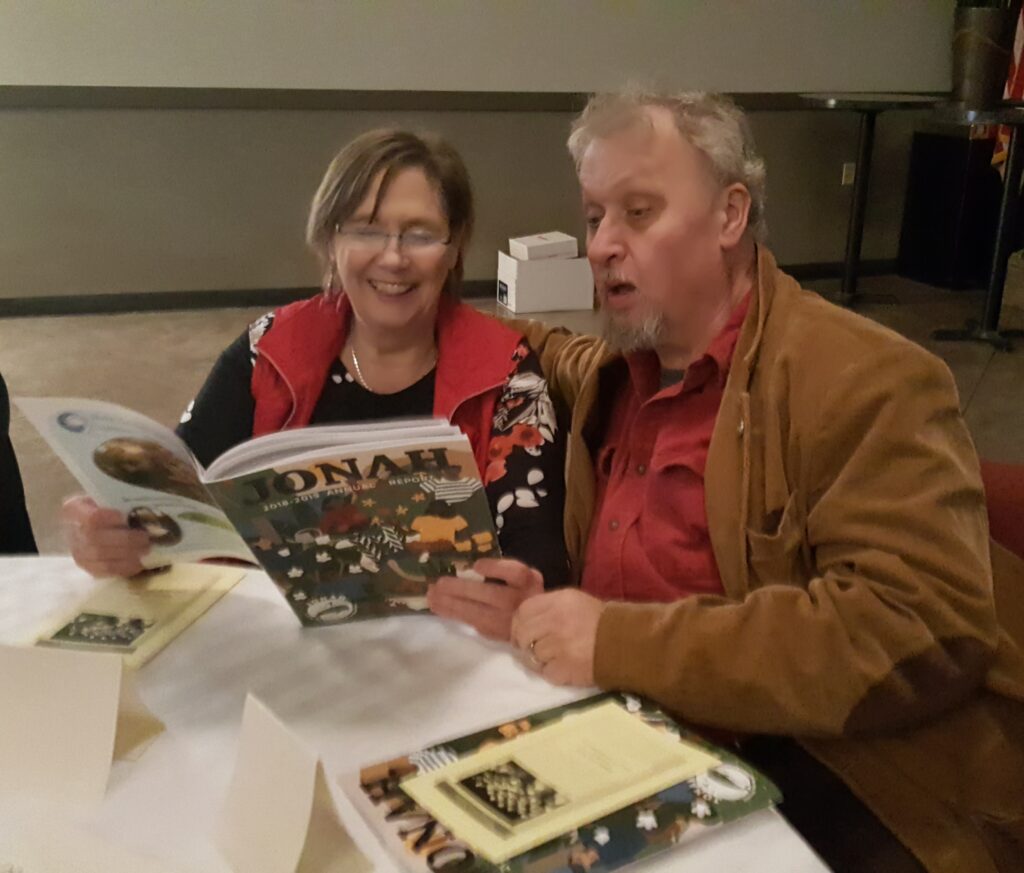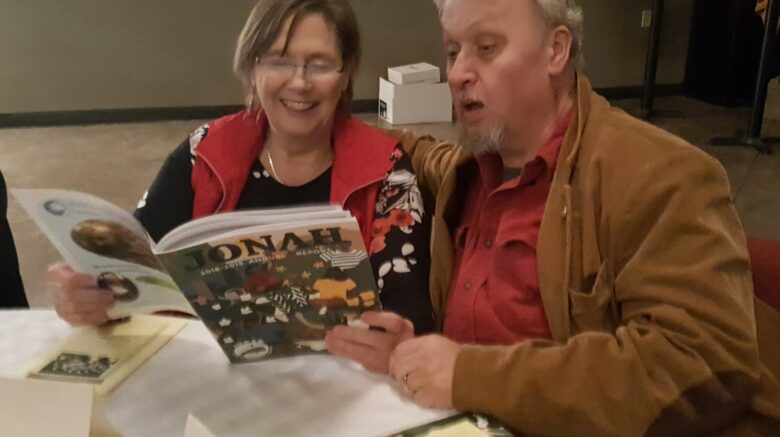By Lynn Buske, JONAH Organizer
Many of our followers, no matter how long they’ve been part of JONAH, aren’t familiar with our organizing techniques and terminology simply because we don’t talk about them enough. In our JONAH Journal we provide short snippets to help you understand more about our organizing model.
The topic I get the most questions on in JONAH is about our connection to churches. A lot of people assume they cannot be part of JONAH unless they belong to a church. THIS IS NOT TRUE!
What does it mean, then, that JONAH does “faith-based” organizing?
Part of this answer is the direction people come to us from, but it’s not as linear as it sounds. There is no dictionary definition of this term that encompasses what it means to us. While “faith” does mean one’s spiritual beliefs, it is the values that come from that faith that bring us into the work that we care about. Where those values come from specifically doesn’t matter as much as the fact we’re involved because it’s bigger than us and yet also deeply personal. One could have no belief in a god or higher power, for example, and yet learned from experiences in life that equitable treatment of all humans is an important part of life together. One might have deep faith values and not be a member of a congregation but seek connection to a group acting from similar values. We can have similar values yet might have reached them from different paths. In my mind, that only makes those values stronger.
This concept not only generates people with clarity and sustaining passion, it prevents people coming to our non-partisan organization from a political or self-motivated view point. Everything we do in our organization is born of our values about how people should treat each other.
This means you can volunteer in any capacity with us whether you’re a part of a faith community or not, and whatever religious/faith understanding you have or don’t have, knowing that the rest of the people in JONAH are driven by the same values.
JONAH’s values, as you can see printed on our yearbook’s first page, are:
- Radical Inclusivity: Belief in the infinite dignity and worth of every human life, in the ethic of shared abundance, and the intentional inclusion of all persons – especially people who have traditionally lived at the margins of society.
- Love: opposition to all forms of oppression and inequity, and trust in the triumphs of love and hope over cynicism, hate, and fear.
- Reconciliation: the idea of repairing past harms, and restoring people and communities to right relationship.
- Living for the Future: Having the well-being of our grandchildren’s grandchildren’s grandchildren as the criterion for the decisions we make and the structures we support.
- Environmentalism: belief that we are responsible for the stewardship of the natural world.
The second part of the answer to what “faith-based” means is that we work with faith institutions. Our Board of Directors comprises representatives from members of religious institutions (though we do have At Large positions for people not attached to religious groups). We do this because:
- Congregations already share our values of compassion in action – they’re doing mission work to benefit the community, and looking for more ways to serve. Connecting with them is a great way to build fast relationships with people ready to respond to urgent issues, and is an effective communication chain. Board members report back to their congregation on JONAH news.
- Also, congregations have their own goals on issues they see in their neighborhood or the world, and we support them in a number of ways – sharing that work, offering financial support for something in line with what we do, guidance to work upstream to fix sources of injustice versus just offering charity, and training to help their groups work effectively. Currently, for example, our Environmental Task Force leaders are partnering with a number of congregations to help them form Green Teams. Also, First Presbyterian’s mission team wanted to do work on mental health this spring because they were concerned after COVID. We offered finances and guidance to create workshops for the public on various mental health topics.
- Our membership includes a variety of faith backgrounds. We are interfaith as a way to demonstrate the importance of diversity – that working together towards a common goal despite some fundamental differences is possible.
Our membership includes congregations of all sizes and faith backgrounds (again, see our Yearbook first page for a listing), and we are proud to welcome all who want to come TOGETHER to collaboratively find solutions to issues that drive a wedge between neighbors and to lift up those who have been struggling. Together – because of what we believe the world should look like. Together – because it’s more important than just one of us. Together – because it’s ALL of us.
One last thought, as I’ve also had this conversation many times in my work, JONAH is also a representation of the good things that faith communities do and is a place for the faith institutions that are most welcoming and are proud of sharing our values. Many people have had the unfortunate experience of having bad experiences with religion. Perhaps connecting with individuals in JONAH can heal part of that. Humans are not perfect, and institutions are made up of humans, so the best way to ensure a healthy community is to work together.
What values and beliefs do you bring to JONAH? What compels you to participate or follow? How are you living out those ideals? Are you working WITH your neighbors? THAT is the essence of “faith-based” organizing.


